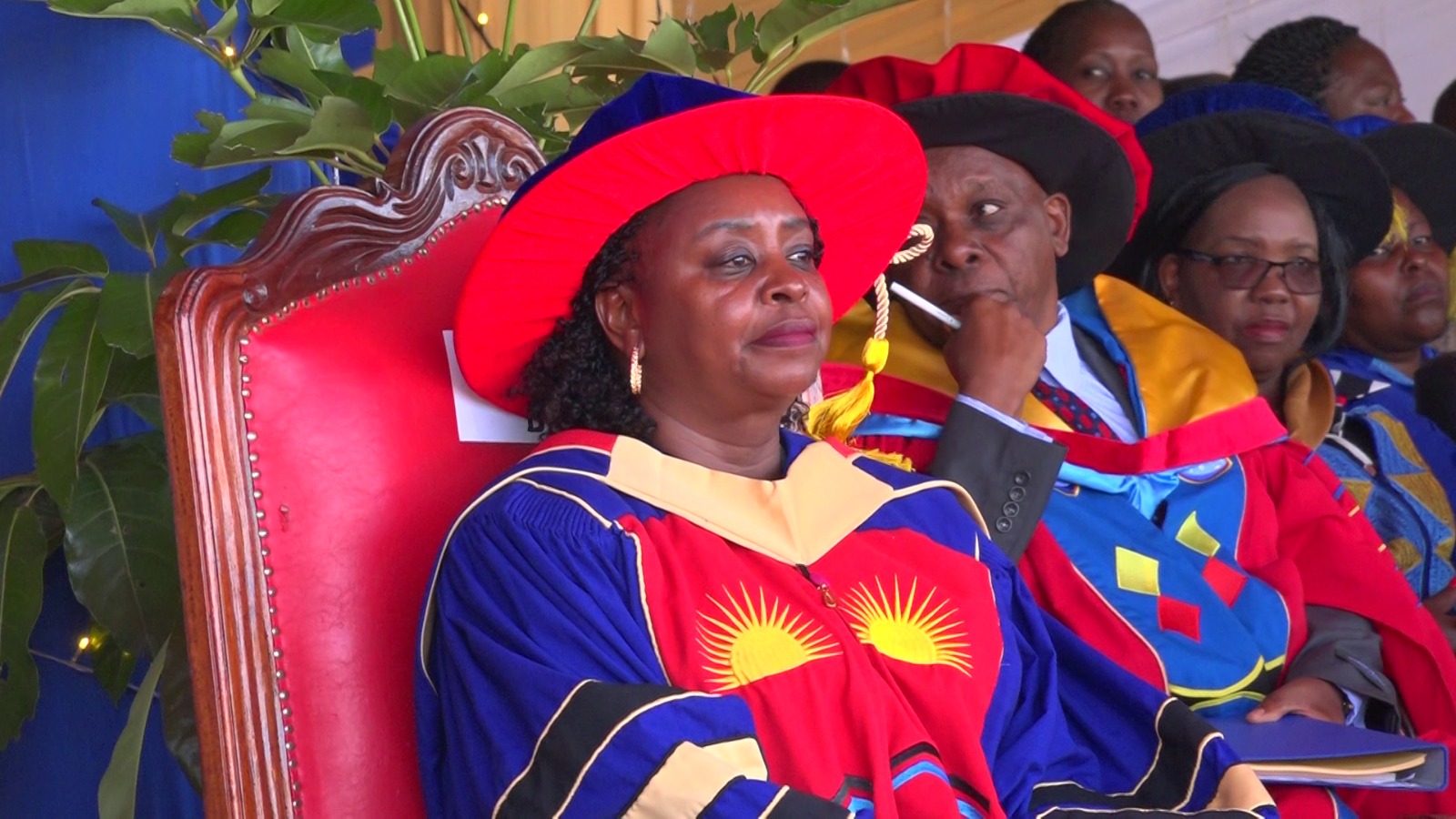
WAFULA: Create more safe spaces that champion men’s mental health
Globally, November is recognised as men’s month.
This will help cultivate a healthy workforce and enhance productivity.
In Summary

For success in businesses and
government organizations, employers have been challenged to invest in mental
health initiatives to cultivate a healthy workforce that will be productive.
Mount Kenya University (MKU) co-founder Dr Jane Nyutu noted that psychologically healthy employees are more motivated, productive and engaged, which makes them more creative and innovative thereby contributing positively to the organization’s success.
Speaking during MKU’s 26th graduation ceremony, Dr Nyutu emphasized that mentally sober employees can solve problems and make critical decisions.
Some 7,448 graduands were conferred with PhDs, Masters Degrees, Degrees, Diplomas and Certificates in diverse disciplines in the event held at the institution’s Happy Valley grounds in Thika on Friday.
At a time when mental health issues are prevalent in the country, with an estimated 10.3% of the population experiencing a common mental disorder, Dr Nyutu blamed biological, psychological, and social factors for augmented mental health issues and called for immediate address for better livelihoods.
She disclosed that the University has rolled out a psycho-education education programme targeting new learners.
She said that first-year students receive mentorship and training to empower them with the requisite knowledge that enables them to sail through varsity life without sinking into mental anguish and other anti-social vices.
“The new students usually find it hard to settle and cope with University life because they are not under their parent’s supervision. They meet people from all walks of life. This programme is meant to salvage them from issues that may push mental disorders during their varsity life,” she said.
The Don noted that MKU has put in place structures that promote good health and well-being of its students, staff and members of the community which is in line with the Sustainable Development Goals No3.
“We already have a full-fledged Student welfare department and a counselling faculty that is well structured and supported. We also have programs to help, offer individualized counselling, peer counselling and referral collaboration with mental health professionals,” Dr Nyutu noted.
On her part, Ambassador Eunice Kigenyi, the Deputy High Commissioner of the Uganda High Commission in Nairobi, challenged universities to embrace internationalization in a bid to increase global competitiveness and enhance student and staff mobility.
She noted that MKU has been working with German-based organizations and universities to not only train students but also secure nursing opportunities for graduates adding that internationalization is key in improving the quality of education and research for all students to eventually positively contribute to society.
“Internationalization of university education towards the development of a competitive global workforce is important. The world is changing and Universities including MKU as an institution must remain well in tandem with that change. Within the world of work, this global change is significantly brought about by the fast-evolving 4th Industrial Revolution which is powered by digitization and stimulated by artificial intelligence,” Kigenyi said.
MKU Vice Chancellor Prof Deogratius Jaganyi urged universities to invest in the latest technologies for the effective delivery of cutting-edge research and training.
He revealed that the private institution recently acquired and installed the Illumina NextSeq 1000, a next-generation sequencing machine at its Center for Malaria Elimination.
The first such sequencer to be owned by an educational institution in Kenya is used for research in cancer, antimicrobial resistance, and tropical infectious diseases.
“This is one of the latest sequencers in the market with a capacity of generating 160 GB of data per sequencing cycle. This will enhance the capacity of research outputs from the University and offer opportunities for collaboration with other institutions,” Prof Jaganyi said.
For effective production of fully-baked graduates, Jaganyi at the same time rooted for sustained collaborations with other universities locally and internationally.
“We have also continued to align, review and revamp our curricula across all programmes offered in the 13 schools to mainly address emerging trends and the market demands,” Prof Jaganyi said.

Globally, November is recognised as men’s month.

Eating nutrient-rich foods nourishes both body and mind.